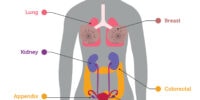How To Prevent And Manage Hypoglycemia (Low Blood Sugar)
Hypoglycemia, also known as low blood sugar, is a condition characterized by abnormally low levels of glucose in the bloodstream. It can occur in individuals with diabetes, as well as those without the condition. Hypoglycemia can lead to various symptoms such as dizziness, confusion, and even loss of consciousness if left untreated.
Therefore, it is crucial to understand the causes and take appropriate measures to prevent and manage hypoglycemia effectively.
This article aims to provide a comprehensive guide on preventing and managing hypoglycemia. It will explore the importance of recognizing the symptoms of low blood sugar and monitoring glucose levels regularly.
Additionally, it will discuss the significance of following a balanced diet and meal plan, engaging in regular exercise, and taking medications as prescribed.
Furthermore, creating an emergency plan and seeking professional guidance and support will be emphasized as crucial steps in managing hypoglycemia effectively.
By implementing these strategies, individuals can minimize the risk of hypoglycemic episodes and maintain stable blood sugar levels, promoting overall health and well-being.
Key Takeaways
- Regular monitoring of blood sugar levels is essential for managing hypoglycemia.
- Following a balanced diet and meal plan is crucial for managing hypoglycemia.
- Regular exercise helps improve glycemic control and aids in weight management.
- Seeking professional guidance and support from healthcare providers and diabetes educators is crucial.
Understanding the Causes of Hypoglycemia
The etiology of hypoglycemia encompasses a range of factors including excessive insulin administration, inadequate carbohydrate intake, physical activity, and certain medications.
Excessive insulin administration is a common cause of hypoglycemia, particularly in individuals with diabetes who may inject too much insulin or take an excessive dosage of oral hypoglycemic agents.
Inadequate carbohydrate intake can also lead to low blood sugar levels, as carbohydrates are the main source of glucose in the body.
Physical activity can contribute to hypoglycemia by increasing the body’s demand for glucose and depleting glycogen stores in the liver.
Additionally, certain medications, such as insulin secretagogues or beta-blockers, can lower blood sugar levels by either increasing insulin secretion or impairing its release.
Understanding the various causes of hypoglycemia is crucial in preventing and managing this condition effectively.
Recognizing the Symptoms of Low Blood Sugar
Recognizing the symptoms of low blood sugar involves being aware of the physiological cues that indicate a potential drop in glucose levels. Hypoglycemia can manifest differently in individuals, but there are common symptoms that can be observed.
These symptoms can be classified into two categories: autonomic and neuroglycopenic. Autonomic symptoms include sweating, trembling, palpitations, and a feeling of anxiety or uneasiness. On the other hand, neuroglycopenic symptoms involve poor concentration, confusion, dizziness, weakness, and even loss of consciousness.
It is important to note that the severity and combination of symptoms can vary depending on the individual and the level of glucose drop. Recognizing these symptoms promptly is crucial in preventing further complications and managing hypoglycemia effectively.
Regular monitoring of blood sugar levels, being aware of personal triggers, and seeking immediate medical attention when symptoms arise are essential for individuals at risk of low blood sugar.
Monitoring Your Blood Sugar Levels
Monitoring blood sugar levels is an essential aspect of managing and understanding one’s glycemic control. Regular monitoring allows individuals with hypoglycemia to gain insights into their glucose levels and make informed decisions regarding their diet, physical activity, and medication.
Several methods can be employed for monitoring blood sugar levels, including self-monitoring of blood glucose (SMBG) and continuous glucose monitoring (CGM) systems. SMBG involves using a glucose meter to measure blood sugar levels through a fingerstick test. This method provides immediate results and is typically recommended for individuals who require insulin therapy.
CGM systems, on the other hand, continuously monitor glucose levels throughout the day, providing real-time data and trend information. This can be particularly helpful in identifying patterns and detecting hypoglycemic episodes.
Regular monitoring empowers individuals to take necessary actions to prevent and manage hypoglycemia effectively.
Following a Balanced Diet and Meal Plan
Following a balanced diet and meal plan is crucial for individuals with diabetes to maintain optimal glycemic control and support overall health and well-being. It is recommended to:
-
Include a variety of nutrient-dense foods: Consuming a wide range of fruits, vegetables, whole grains, lean proteins, and healthy fats can provide essential vitamins, minerals, and fiber. This helps regulate blood sugar levels and prevents spikes.
-
Limit sugar and refined carbohydrates: Foods high in added sugars and refined carbohydrates can rapidly raise blood sugar levels. By reducing or avoiding these foods, individuals can better manage their blood sugar levels and decrease the risk of hypoglycemia.
-
Monitor carbohydrate intake: Carbohydrates directly impact blood sugar levels. It is important to monitor the amount and type of carbohydrates consumed with each meal and snack. This helps maintain stable blood sugar levels and prevents sudden drops in glucose levels.
By following a balanced diet and meal plan, individuals with diabetes can effectively prevent and manage hypoglycemia while promoting overall health and well-being.
Engaging in Regular Exercise
Regular exercise plays a crucial role in improving glycemic control and promoting overall health and well-being in individuals with diabetes.
Engaging in regular physical activity helps to lower blood glucose levels by increasing insulin sensitivity and facilitating glucose uptake by the muscles.
It also aids in weight management, which is important for individuals with diabetes as excess weight can worsen insulin resistance.
Exercise can also reduce the risk of cardiovascular complications associated with diabetes, such as heart disease and stroke.
It is recommended that individuals with diabetes engage in at least 150 minutes of moderate-intensity aerobic activity per week, along with muscle-strengthening activities on two or more days.
However, it is important to consult with a healthcare professional before starting an exercise program to ensure safety and effectiveness.
Taking Medications as Prescribed
Adhering to a prescribed medication regimen is essential for individuals with diabetes to optimize their glycemic control and overall health outcomes. Medications play a crucial role in managing hypoglycemia by regulating blood sugar levels and preventing dangerous drops.
To effectively take medications as prescribed, individuals should:
- Follow the prescribed dosage and timing strictly.
- Store medications properly to maintain their effectiveness.
- Keep track of medication refills to avoid running out.
- Communicate with healthcare providers about any concerns or side effects.
- Be aware of potential drug interactions and discuss them with healthcare providers.
These practices ensure that individuals with diabetes consistently receive the necessary medications to prevent and manage hypoglycemia. Compliance with prescribed medication regimens can significantly reduce the risk of hypoglycemic episodes and promote better overall health for individuals with diabetes.
Creating an Emergency Plan
To ensure the safety and well-being of individuals with diabetes, it is crucial to establish a comprehensive emergency plan that addresses potential challenges and provides a framework for swift and effective response in critical situations.
The emergency plan should include clear instructions on how to recognize the symptoms of hypoglycemia and what immediate actions to take. It is essential to communicate this plan with family members, close friends, and coworkers to ensure their understanding and ability to assist during an emergency.
The plan should also outline the steps to follow when hypoglycemia occurs, such as consuming a fast-acting source of glucose, regularly monitoring blood sugar levels, and seeking immediate medical attention if necessary.
Additionally, it is important to periodically review and update the emergency plan to accommodate any changes in the individual’s health status or treatment regimen.
By establishing and adhering to a well-defined emergency plan, individuals with diabetes can effectively prevent and manage hypoglycemic episodes.
Seeking Professional Guidance and Support
Seeking professional guidance and support from healthcare providers and diabetes educators is crucial in developing a comprehensive understanding of the intricacies and complexities of diabetes management. These professionals possess the knowledge and expertise necessary to provide individuals with tailored strategies for preventing and managing hypoglycemia.
They can educate patients about the signs, symptoms, and risk factors associated with low blood sugar and offer personalized advice on how to prevent and treat hypoglycemic episodes. Healthcare providers and diabetes educators can also assist in developing an emergency plan specific to the individual’s needs, ensuring that appropriate actions are taken during an episode of low blood sugar.
Additionally, they can provide ongoing support, monitoring, and adjustments to treatment plans as needed, helping individuals effectively manage their diabetes and reduce the occurrence of hypoglycemia.
Frequently Asked Questions
Can hypoglycemia be prevented completely, or is it a lifelong condition?
Hypoglycemia cannot be completely prevented as it is a potential complication of several medical conditions and medications. It is a lifelong condition that requires ongoing management and monitoring of blood sugar levels.
Are there any natural remedies or alternative treatments for managing low blood sugar?
Natural remedies and alternative treatments for managing low blood sugar include consuming small, frequent meals, incorporating complex carbohydrates and fiber into the diet, regular exercise, stress management techniques, and herbal supplements such as cinnamon or fenugreek.
Can hypoglycemia lead to other health complications if left untreated?
If left untreated, hypoglycemia can lead to various health complications. These may include seizures, loss of consciousness, impaired cognitive function, cardiovascular events, and even coma. Prompt treatment and management are crucial to prevent such complications.
Are there any specific foods or beverages that can help prevent hypoglycemia?
There is no specific food or beverage that can prevent hypoglycemia. However, consuming a balanced diet that includes complex carbohydrates, protein, and healthy fats can help maintain stable blood sugar levels.
Is it safe for individuals with hypoglycemia to consume alcohol?
Consuming alcohol may pose risks for individuals with hypoglycemia. Alcohol can cause a drop in blood sugar levels, making hypoglycemia more likely. It is advisable for individuals with hypoglycemia to avoid or limit alcohol consumption to prevent complications.







